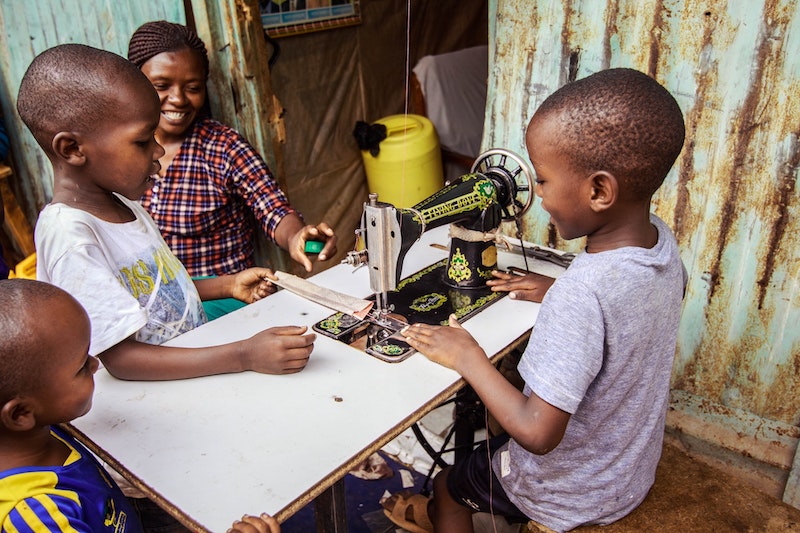The Action Foundation in Kenya

Close to 1 million people with some form of disability live in Kenya. People with disabilities are at a greater risk of living in poverty. Women and adolescent girls with disabilities are even more at risk of poverty as well as gender-based violence. Maria Omare founded The Action Foundation (TAF) in Kenya, a grassroots nonprofit organization, because she noticed a need for disability awareness, education that caters to children with disabilities in low-income areas and support for the caregivers of children and adolescents with disabilities. TAF is paving the way for inclusivity and resiliency. TAF is minimizing disparities among children and adolescents with disabilities and their caregivers through three programs.
The TUNZA Program
TAF’s TUNZA program offers support to caregivers of children and adolescents with disabilities. It also provides necessary skills and resources to caregivers. In Kibera, where the center is located, many families live in extreme poverty. They do not have the resources or finances to care for a child with a disability.
Earlier in 2021, TAF in Kenya launched an inclusive early childhood care education map and referral directory. This tool helps caregivers find and utilize therapy services at little to no cost. This can play a vital role in helping children with disabilities have a better quality of life.
The TUNZA program also brings awareness and education about disabilities because many Kenyans believe that children born with disabilities are cursed, bewitched or a bad omen. A survey found that 45% of mothers who have a child with a disability are “pressured to give up and/or kill their child.” Other mothers experience coercion to leave their children at an institution. The statistics are even more staggering in rural areas in Kenya.
The IBUKA Program
Many people are taking notice of TAF’s advocacy efforts and are helping to amplify the organization’s voice, such as Michelle Obama and Google. Obama publicly highlighted TAF’s work in teaching girls with disabilities STEM-oriented education, such as robotics and coding, as a partnership with the Girls Opportunity Alliance.
Women and girls with disabilities in Kenya are more likely to face poverty, discrimination and denial of basic needs. Ibuka in Swahili means “emerge” or “rise,” and that is the aspiration of the IBUKA program.
One of the ways the program combats negative stereotypes of women and girls with disabilities and offers them hope is through mentorship and education. It teaches the women and girls the skills necessary, such as STEM (science, technology, engineering and math) and vocational training, so that they can play an active role in the workforce. Women with disabilities are less likely to face poverty, discrimination, exploitation and violence when they are able to work or run their own businesses.
The SOMESHA Program
Children with disabilities in Kenya are unlikely to attend school due to a lack of accessibility. Also, fewer “than one in four children with a disability had access to any services.” Many families cannot afford special services for their children as the average monthly income per person is $39 and women in Kibera make 42% less than men.
The SOMESHA program aims to offer accessibility and inclusive education for children with disabilities. The program fits learning to the unique needs of each child. The SOMESHA program created a mobile-based application that improves literacy and promotes inclusivity. It is an interactive application for both caregivers and children. The application was especially helpful during the COVID-19 pandemic when Kenyans could not socialize in large groups.
The heartbeat of The Action Foundation in Kenya is in the people. Omare, the center’s staff and volunteers, the caregivers and the children make the organization thrive. The people of Kenya have historically looked down on people with disabilities as inferior, bewitched and helpless. However, Omare and her team are changing the narrative. They are offering hope and resources to families with children who have disabilities.
– Amy Helmendach
Photo: Unsplash
